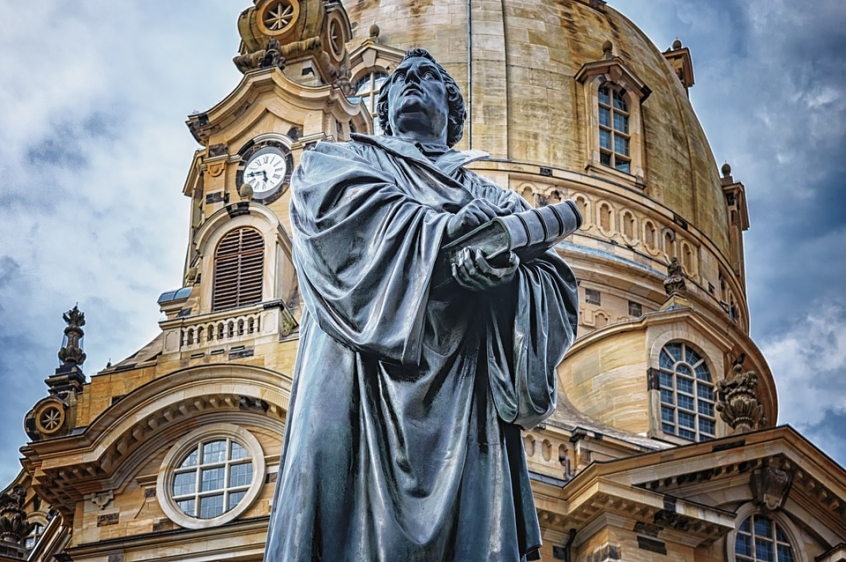On this day in 1524 a gathering of radical evangelical Germans united, determined to liberate the nation's peasants from the oppression of the ruling classes. This was a key moment in the ill-fated Peasants' Revolt of 1524-25, a movement inspired by the reforms of Martin Luther – but Luther utterly opposed the serfs' rebellion.
Though they saw him as their hero, Luther condemned the peasants' revolt and called for its brutal suppression, arguably enabling the bloody demise of more than 100,000 peasants.

The peasant leader Hans Müller united with peasants from the town of Stühlingen on August 24, 1524. The group named itself the 'Evangelical Brotherhood', with a vision to free the peasants.
It set out its ambitions in a document titled the Twelve Articles, which outlined reforms, in the style of Luther and inspired by Ulrich Zwingli, for the social realities facing Germany's poor. It included in its demands the right for congregations to elect and dismiss their pastors at will (instead of princes chosing pastors), while tithes would be directed toward supporting pastors, with the remainder given to the poor. It called for an end to serfdom and for the full and equal rights of individuals irrespective of class.
It won wide circulation; 25,000 copies were printed across the country. The peasants were emboldened by Luther, who had stood up to the 'system', challenged the mighty Catholic Church and its systemic corruption, and preached on the 'priesthood of all believers' and mankind's equality before God.
But Luther was not the passionate advocate the peasants hoped him to be. He wanted theological reform and spiritual renewal but not political revolution. At first attempting to broker peace in the Peasants War, Luther addressed the 'disastrous rebellion' in a tract to both peasants and princes titled Admonition to Peace. He didn't despise the Twelve Articles, but he was furious at the idea that he had started the rebellion.
He wrote: 'You...must bear witness that I have taught with all quietness, have striven earnestly against rebellion, and have energetically encouraged and exhorted people to obey and respect even you wild and dictatorial tyrants. This rebellion cannot be coming from me.'
Luther had sympathies with the oppressed, but vehemently discouraged violence and urged them to prioritise spiritual consolation over seeking earthly reform. He feared the chaos of rebellion could destroy the country. As Luther biographer Peter Stanford wrote, the monk was conflicted: wealthy princes like Elector Friedrich of Saxony had given him refuge when he had faced the fury of the Catholic Church. He could hardly turn on the ruling class that had saved his life. And his 'two kingdoms' theology prioritised spiritual hope to come over earthly, political transformation.
He made things worse with his even more incendiary tract: Against the Murderous and Thieving Hordes of Peasants, published in May 1525. Baptism made men free, Luther said, but in soul not body – so peasants could not violently revolt in God's name. The rulers were justified according to the teaching of St Paul in Romans 13, 'bearing the sword' to punish, as Luther put it, 'faithless, perjured, disobedient, rebellious murderers, robbers, and blasphemers'. The peasants needed to submit to authorities and 'give to Caesar what belongs to Caesar', as Christ put it.
Luther then got violent, writing: 'Therefore, let everyone who can, smite, slay, and stab, secretly or openly, remembering that nothing can be more poisonous, hurtful, or devilish than a rebel. It is just as when one must kill a mad dog; if you do not strike him, he will strike you, and a whole land with you'.
The peasants' revolt was ultimately crushed, more than 100,000 were killed in the conflict, and life for the socially oppressed got worse.
The tragedy is that so many of the peasants had been inspired by the seismic reforms of Luther – he was their icon, but refused to back their cause, apparently in bed with the ruling class.
You can follow @JosephHartropp on Twitter













